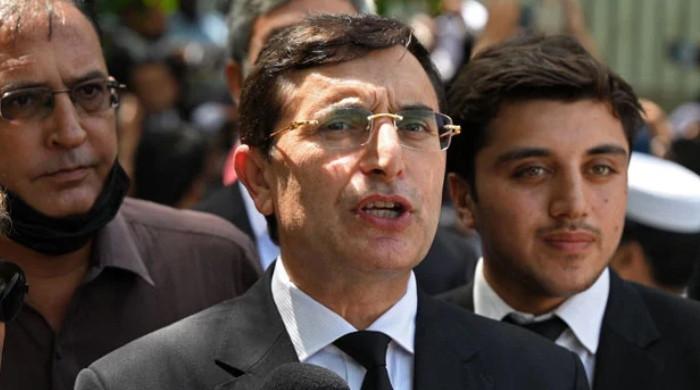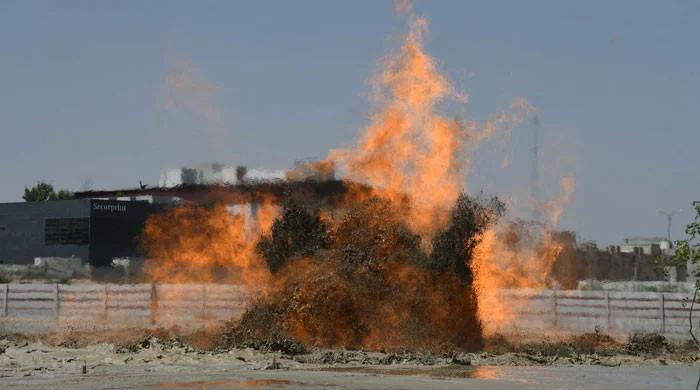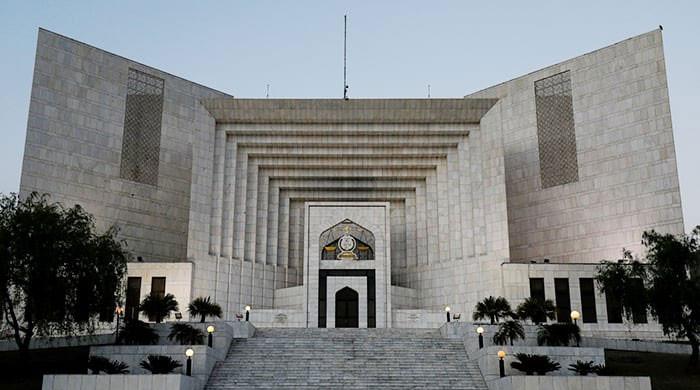Constitutional amendment can't be challenged in any court, says Tarar amid PTI opposition
“If a petition comes, it will be heard by larger constitutional bench, constituted by judicial commission,” says law minister
October 24, 2024

- Article 239 empowers parliament to amend Constitution: Tarar.
- “CJP-led JCP has authority to appoint judges for constitutional benches.”
- Says Bilawal back tracked from constitutional court after meeting Fazl.
Responding to Pakistan Tehreek-e-Insaf’s (PTI) announcement of challenging the recently enacted 26th Constitutional Amendment, Law Minister Azam Nazeer Tarar asserted that an amendment, carried out by parliament with two-thirds majority, cannot be challenged in any court.
Speaking on the Geo News programme ‘Aaj Shahzeb Khanzada Kay Sath’, the minister said that Article 239 of Constitution of Pakistan empowers Parliament to amend the Constitution or carry out a legislation with a two-thirds majority.
“Its clause 5 clearly states that the amendments to the Constitution of Pakistan cannot be challenged in any court,” Tarar said.
Clause 5 of Article 239 states, “No amendment of the Constitution shall be called in question in any court on any ground whatsoever.”
He also cited clause 6 which states, “For the removal of doubt, it is hereby declared that there is no limitation whatever on the power of the Majlis-e-Shoora (Parliament) to amend any of the provisions of the Constitution.”
The minister noted that the government was first considering to establish constitutional court, a move which he says was also supported by Pakistan People’s Party (PPP) Chairman Bilawal Bhutto-Zardari.
However, he said, the former foreign minister back tracked from the constitutional court following meeting with JUI-F chief Maulana Fazlur Rehman. “The cleric suggested to form constitutional benches — a suggestion the government approved.”
He further said that the chief justice-led Judicial Commission of Pakistan (JCP) has the authority to appoint judges for the constitutional benches.
“If a petition regarding interpretation of Constitution or striking down the amendment — which isn’t possible under Article 239 — comes and is somehow taken up, it will be heard by the larger constitutional bench, constituted by JCP,” Tarar added.
A day earlier, PTI leader Shoaib Shaheen said that the party would challenge the 26th Constitutional Amendment in the Supreme Court, calling it an "attack" on the country’s judicial system.
Lately, the ruling coalition led by PM Shehbaz Sharif, after weeks of political manoeuvrings and deliberations, finally managed to pass the contentious 26th Constitutional Amendment bill, empowering the country’s parliament to pick the next CJP from among the three most senior Supreme Court judges.
The amendments brought numerous changes to the country’s judicial system, including taking away suo motu powers, formation of constitutional benches, and performance evaluations of high court judges.
In light of the fresh amendments, a Special Parliamentary Committee nominated Justice Yahya Afridi, third on the seniority list (excluding the incumbent CJP Qazi Faez Isa), as the next chief justice of Pakistan.
Subsequently, President Asif Ali Zardari approved Justice Afridi's appointment under clause 3 of Article 175A read with Articles 177 and 179 of the Constitution, according to a notification issued by the Ministry of Law and Justice.











